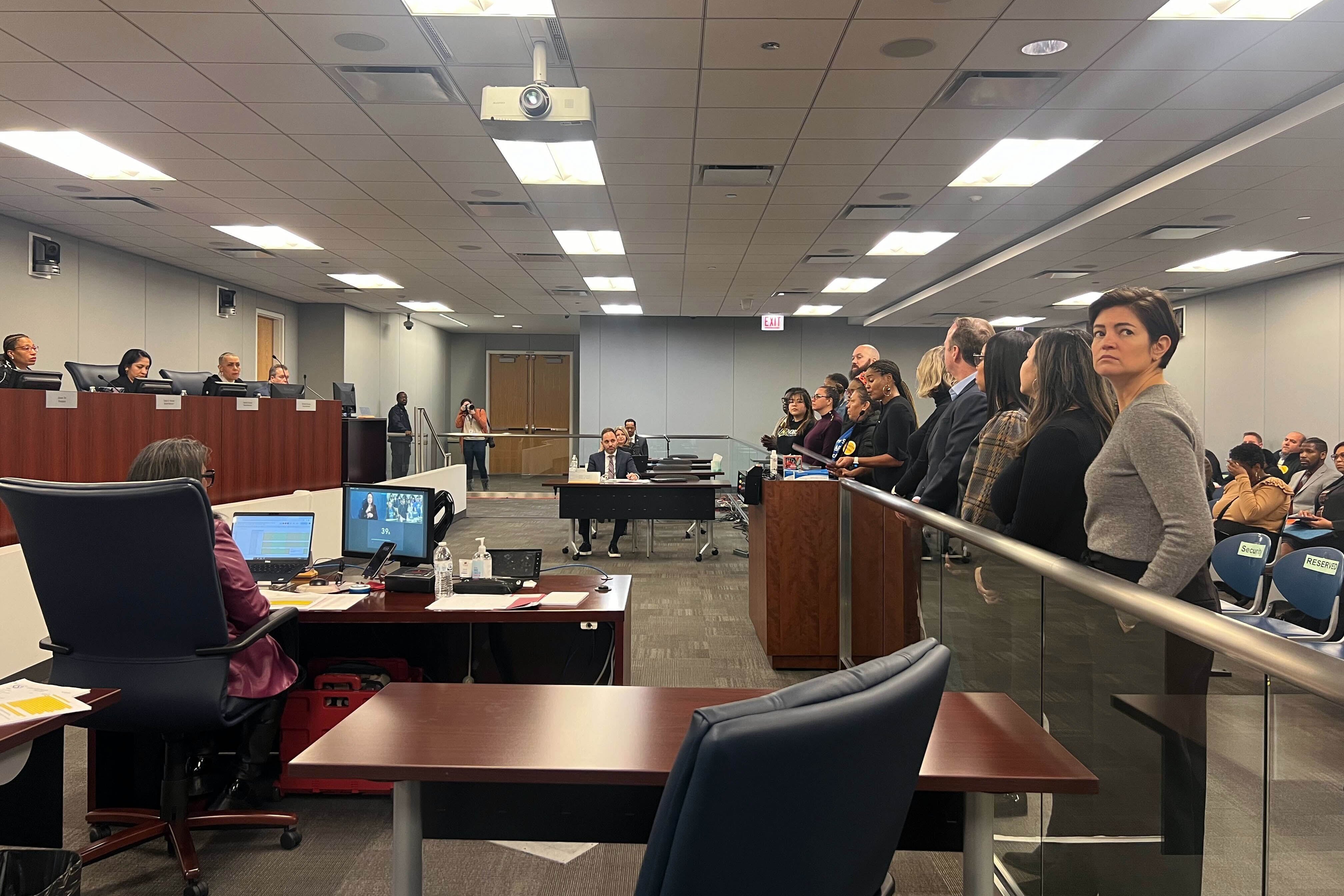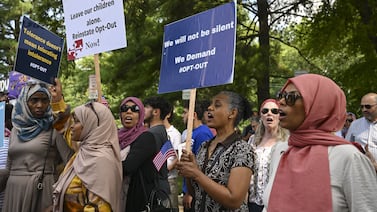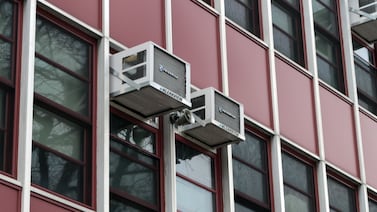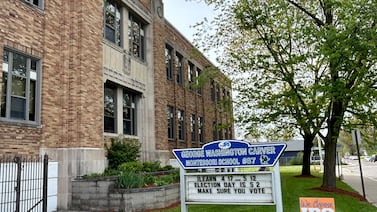The Chicago Board of Education voted Thursday to renew agreements with 12 charter networks, impacting 49 schools. The decision followed months of pleading from charter school leaders, educators, and students.
The board extended contracts for all of the schools up for renewal. It renewed most of the contracts by either three or four years, starting this July. The maximum extension allowed under state law is 10 years.
Each renewal came with a set of conditions, ranging from monitoring services for students with disabilities and students learning English as a new language to improving facilities, financial compliance, and accuracy of teacher licenses. Those conditions were a result of “issues that were identified during our comprehensive review,” said Zabrina Evans, executive director of the district’s Office of Innovation and Incubation in the Office of Portfolio Management.
The vote represented the first round of charter renewals under the current board. In the months leading up to Thursday’s vote, Chicago’s charter school community worried that the board, appointed by Mayor Brandon Johnson, would make it more challenging for charters to get renewed. Johnson, who rose to power as an organizer for the Chicago Teachers Union, has long been critical of charter schools, but has also said he doesn’t oppose them.
More recently, the board passed a resolution stating its intention to move away from school choice and focus on sending more resources to neighborhood schools. The resolution does not call for the closure of schools of choice, such as charters, but board leaders said they would be more closely scrutinizing charter schools.
The board’s vote to renew all contracts isn’t surprising: State law has barred school closures in Chicago until 2025. In July, a Cook County judge overturned the previous board’s decision not to renew its contract with Urban Prep Charter Academy after ruling that the state’s school closure moratorium applies to charters.
Board Vice President Elizabeth Todd-Breland said she appreciates the improvement she’s seen in some charter schools, but said that others have failed to keep up finances or follow federal laws.
“I still maintain that as a private operator getting public money, there should be a higher level of scrutiny,” Todd-Breland said.
District officials said they evaluate charter schools based on performance in three criteria: academics, finances, and operations, which focuses on 13 areas related to state and federal law, requirements in their charter contract, and CPS policy. Five-year extensions are awarded to schools that meet or exceed academic and financial standards and receive the highest rating for operations. Extensions beyond five years go to schools that exceed all standards.
Board President Jianan Shi said he wanted the district to continue focusing on the student experience portion of the operations category for charter evaluations. He said he was concerned to see schools not meeting expectations focused on students with disabilities, students who are learning English as a new language, and student discipline. No school met standards for all three of those categories.
“‘I’m elated that we have schools that are doing well academically and financially, but I want kids to enjoy going to school every day,” Shi said.
During several board meetings since the summer, charter school leaders have asked the board to renew their contracts for the maximum 10 years. While it was previously common for schools to receive five-year extensions, district leaders have more recently renewed charters for shorter terms. Last January, the previous board – appointed by former Mayor Lori Lightfoot – handed out two-year extensions to nearly half of the charter schools up for renewal, while another two got five years.
On Thursday, no school received five years. Just over half were extended for four years, and just over 40% were extended for three years. The board approved a one-year extension for Instituto Justice and Leadership Academy Charter High School and a two-year extension for Chicago High School for the Arts.
Ebonie Durham, executive director of Great Lakes Academy, a charter school that received a three-year extension, asked the board to provide schools and families with more clarity on what it takes to get a 10-year extension.
Great Lakes met academic and financial performance standards, but did not meet benchmarks for operations, including for student discipline, students with disabilities and students learning English as a new language.
As conditions of Great Lakes’ extension, the board called for the school to implement the district’s recommendations for serving students with disabilities. The conditions also call for monitoring how the school is serving English language learners, its disciplinary practices, and how it tracks repairs to facilities.
“If the CEO’s recommendation is accepted and we receive three years, in two years I will be back in front of this board again pleading to be renewed,” Durham said.
Before the board vote, some teachers raised concerns about Instituto Justice and Leadership Academy, which serves students ages 16-21 who became disengaged with school. The teachers at the school, who are part of the Chicago Teachers Union, have voted to strike Feb. 6 in response to concerns over several issues, including staffing levels for students with disabilities, “sanctuary protections” for immigrant students and employees, and compensation, according to the CTU.
Stacy Davis Gates, president of the Chicago Teachers Union, highlighted the fight at Instituto as one reason the renewal process should reflect “what the people, the stakeholders in that school community deserve.” One of her recommendations included creating Local School Councils so that charter parents have more of a voice.
Reema Amin is a reporter covering Chicago Public Schools. Contact Reema at ramin@chalkbeat.org.





